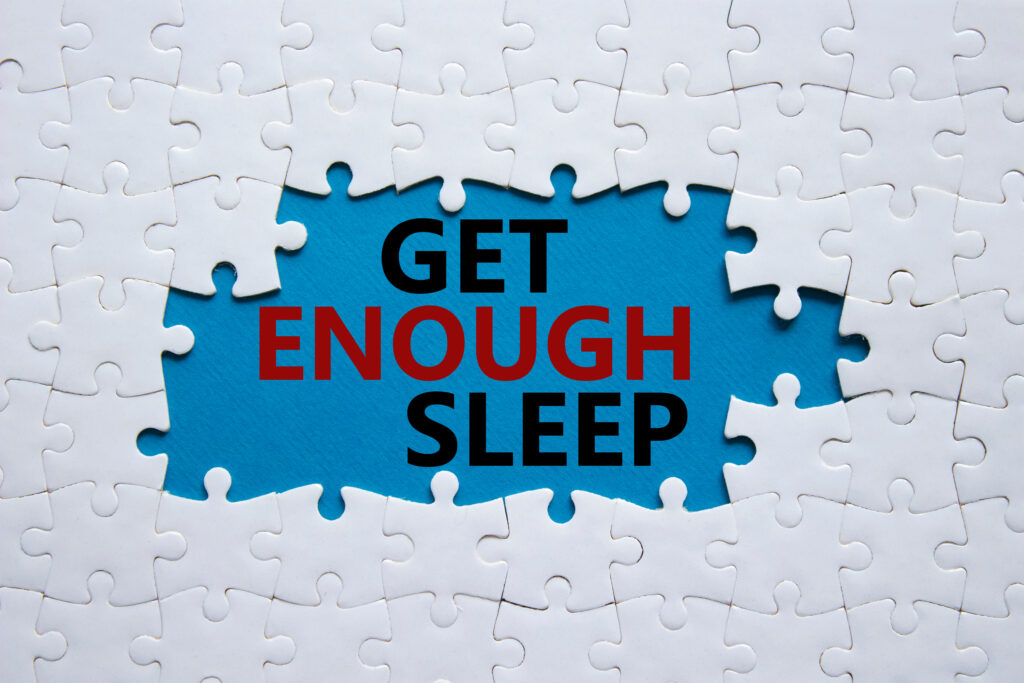If you’re like most Americans, you probably don’t think to mention your sleep habits during your annual checkup. In fact, a 2024 survey from the American Academy of Sleep Medicine (AASM) found that 51% of Americans have never discussed their sleep with a healthcare professional. At the same time, more than half of us (54%) admit we don’t get enough sleep.
So why aren’t we bringing it up? Maybe it’s because we think sleep is a personal problem, or maybe we just don’t realize how critical it is to our health. But according to Dr. Kin M. Yuen, a sleep physician and AASM Advocacy Committee member, it’s time to rethink that mindset:
“We must redefine what is acceptable, which is to optimize our health, sleep, and nutrition. Talking about sleep habits and concerns should be part of every health encounter.”
The Hidden Power of Sleep
When you close your eyes and drift off, your body doesn’t just switch to “off mode.” It’s more like hitting the reset button on a complicated machine. Sleep allows your brain and body to perform essential repairs and maintenance that simply can’t happen while you’re awake.

During sleep:
- Your brain clears out toxins that build up throughout the day, helping you think clearly and remember things.
- Cells repair themselves, fixing damage caused by daily wear and tear.
- Hormones are balanced, regulating stress, hunger, and even blood sugar.
Without enough sleep, these processes grind to a halt. Over time, the effects can be devastating, starting at the cellular level. Free radicals—damaging molecules—begin to accumulate, increasing inflammation and impairing how your cells function. Your immune system weakens, making you more vulnerable to illness. Even your heart can take a hit, as poor sleep disrupts blood pressure and heart rate regulation.
How Lack of Sleep Shows Up in Your Life
You might think you’re “fine” on five or six hours of sleep a night, but your body disagrees. Chronic sleep deprivation shows up in subtle (and not-so-subtle) ways:
- Cognitive issues: Can’t concentrate? Forgetting names and appointments? Your brain’s not clearing out the mental clutter.
- Irritability: If you’re snapping at your loved ones or crying over commercials, sleep might be the missing piece.
- Frequent illness: Sleep-deprived bodies struggle to fend off colds, flu, and infections.
- Weight gain: Poor sleep messes with hunger hormones, leading to late-night snacking and cravings.
Take Sarah, a busy mom of two. She thought feeling exhausted every morning and catching colds every few weeks was just part of her hectic life. But after finally discussing her sleep with her doctor, she learned she was dealing with undiagnosed insomnia—a condition she had dismissed as “just stress.”
Why Don’t We Talk About Sleep?
The AASM survey reveals a gap in how we prioritize sleep in healthcare conversations. Even though sleep impacts nearly every system in the body, many people don’t think to mention it to their doctor. Others might assume their restless nights are “normal” or believe there’s nothing their doctor can do.
Even when sleep issues are discussed, insurance barriers can prevent treatment. According to the AASM, 17% of people who sought care for sleep problems were denied coverage for services like sleep studies or therapies.
But ignoring sleep is a mistake. The AASM emphasizes that sleep is as vital as diet and exercise for overall health. It’s time to change the narrative—and the first step is understanding how to address it.
What Keeps Us Up at Night?
If you’ve ever spent a sleepless night tossing and turning, you know how frustrating it can be. Here are some common reasons why people struggle with sleep:
- Stress and Anxiety: Racing thoughts about work, finances, or relationships can keep your brain in overdrive.
- Sleep Disorders: Insomnia (difficulty falling or staying asleep) and sleep apnea (pauses in breathing) are more common than many realize.
- Lifestyle Choices: Late-night screen time, caffeine consumption, or irregular sleep schedules can throw off your body’s natural rhythm.
- Physical Discomfort: Chronic pain, restless legs syndrome, or other medical conditions can make getting comfortable nearly impossible.
Understanding what’s disrupting your sleep is the first step toward fixing it.
How to Talk to Your Doctor About Sleep
The good news is that sleep problems are treatable—but only if they’re addressed. The AASM recommends starting the conversation with your doctor. Here’s how to make it productive:
- Track your sleep: Keep a sleep diary for a few weeks, noting when you go to bed, wake up, and how rested you feel.
- Describe your symptoms: Be specific about what’s happening—whether it’s snoring, trouble falling asleep, or feeling tired all day.
- Ask questions: If you’re taking medication, ask whether it could be interfering with your sleep and explore alternatives.
Your doctor might refer you to an AASM-accredited sleep center, where specialists can diagnose and treat conditions like insomnia or sleep apnea.
The Bottom Line
Sleep isn’t a luxury; it’s a cornerstone of health. If you’re one of the 51% of Americans who’ve never talked to your doctor about sleep, consider this your wake-up call. Sleep affects every part of your life—your mood, your immune system, your heart, and even your ability to focus on that 3 p.m. meeting.
By prioritizing sleep and addressing concerns with your doctor, you’re investing in a healthier, more energized future. And the next time you’re tempted to skip sleep for one more episode or a late-night scroll, remember: nothing can replace a good night’s rest.
For more tips on how to prioritize sleep and find an accredited sleep center near you, visit sleepeducation.org. You deserve it—and so does your health.

